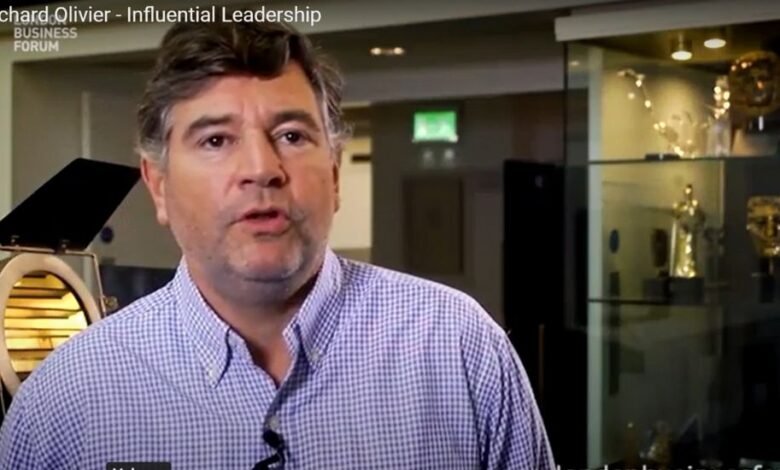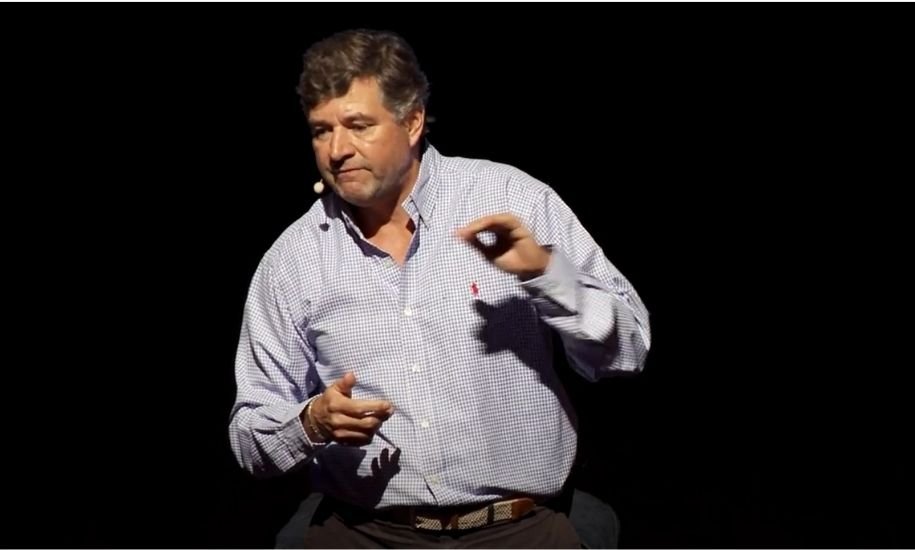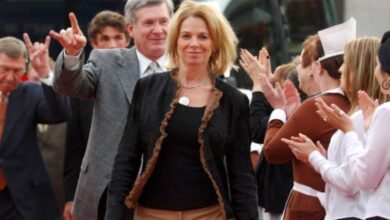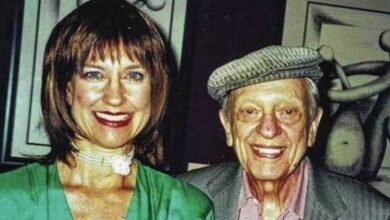Richard Olivier: Shakespeare, Archetypes, and the Art of Leadership

When we think about Shakespeare’s plays, we often imagine their role in theatre, culture, or literature. Yet for Richard Olivier—son of acting royalty Sir Laurence Olivier and Dame Joan Plowright—Shakespeare is not only an artistic foundation but also a leadership framework. Over the past three decades, Richard Olivier has transformed himself from a theatre director to a leadership coach and educator. Through his innovative method of “Mythodrama,” he has taught executives, CEOs, and teams how timeless stories can reveal profound insights into power, purpose, and human dynamics.
This article takes a deep dive into his life, career, philosophy, and impact, offering a comprehensive look at one of the most unusual figures at the intersection of theatre and leadership.
Early Life and Family Legacy
Born in 1961, Richard Olivier was destined to be near the stage. His father, Sir Laurence Olivier, was considered one of the greatest actors of the 20th century, and his mother, Dame Joan Plowright, is an acclaimed actress in her own right. Growing up in such a household meant Richard was immersed in creativity, performance, and the nuances of storytelling from the beginning.
Unlike his father, who pursued acting with relentless drive, Richard’s path was less linear. He studied theatre and gravitated toward directing rather than acting. His artistic sensibility leaned toward exploring the depth of stories rather than performing them himself. His upbringing instilled in him both an appreciation for Shakespeare’s legacy and the ability to see stories as mirrors for the human condition.
Theatre Career and Shakespeare’s Globe
In the mid-1990s, Richard Olivier was making his name as a theatre director. His most notable achievement during this period was directing Henry V for the re-opening season of Shakespeare’s Globe Theatre in London in 1997. The production, starring Mark Rylance, was both bold and historically significant. It marked a new era for the Globe, showcasing how Shakespeare’s plays could be reimagined for modern audiences while staying true to their core messages.
Directing Henry V would later prove pivotal for Olivier’s next chapter. The play’s themes of leadership, courage, and responsibility resonated with him deeply. This intersection between art and leadership planted the seed for what would become his signature innovation: Mythodrama.
From Stage to Boardroom: The Birth of Mythodrama
By the late 1990s, Olivier began exploring how stories—particularly Shakespeare’s—could illuminate leadership principles. He founded Olivier Mythodrama, a company dedicated to using classic narratives as frameworks for executive education.
The concept is simple yet profound: by stepping into the archetypal roles and story arcs of Shakespeare’s plays, leaders can better understand their own journeys. For example:
-
Henry V illustrates inspirational leadership and purpose.
-
Hamlet explores dilemmas, procrastination, and decision-making.
-
The Tempest highlights creativity, vision, and transformation.
Through workshops, performances, and experiential learning, Olivier’s method allows executives to “play out” leadership challenges rather than simply discuss them in abstract terms. His approach has been used by organizations worldwide, from corporations to NGOs, to inspire leaders to embody values such as courage, authenticity, and vision.
Archetypes and Leadership Psychology
Central to Olivier’s philosophy is the idea of archetypes. Drawing on Carl Jung’s psychology, he argues that we all carry multiple archetypal energies—such as the Warrior, the Visionary, the Caregiver, and the Creator. In leadership, different situations require us to access different archetypes.
In 2019, together with Laurence Hillman, Olivier co-authored Archetypes at Work: Evolving Your Story, One Character at a Time. This book presents a practical system of ten archetypes designed to help individuals, teams, and organizations develop balance and resilience. By mapping which archetypes are dominant or underused, leaders can grow more self-aware and adaptable.
This framework has since become a certification program, allowing coaches and consultants worldwide to integrate archetypal work into leadership development.

Books and Written Contributions
Richard Olivier has written several influential works:
-
Inspirational Leadership: Henry V and the Muse of Fire
This book explores how Shakespeare’s Henry V can teach modern leaders about vision, inspiration, and courage. It blends literary analysis with practical leadership lessons. -
Peak Performance Presentations: How to Present with Passion and Purpose (co-written with Nicholas Janni)
This work applies theatre techniques to business communication, showing how presence, energy, and authenticity can transform public speaking. -
Archetypes at Work (with Laurence Hillman)
A comprehensive system of archetypal development for leadership, coaching, and organizational culture.
These works make his methods accessible beyond workshops and have cemented his place in the leadership development world.
Global Recognition and Impact
Richard Olivier’s work has gained international recognition:
-
He has been a guest speaker at the World Economic Forum in Davos.
-
He was recognized as a Thought Leader 2013 by the Best Practice Institute.
-
He is an Associate Fellow at Oxford University’s Saïd Business School, where he has contributed to executive education.
His programs have influenced not only CEOs and executives but also educators, nonprofit leaders, and creative entrepreneurs. His unique ability to connect art with leadership psychology makes him a rare voice in a world often dominated by metrics and spreadsheets.
Philosophy of Leadership Through Story
At the heart of Richard Olivier’s approach lies a simple truth: humans learn best through stories. From ancient myths to Shakespearean drama, stories embody timeless struggles, triumphs, and choices. Leaders who can connect their own journeys to such archetypal narratives gain authenticity and depth.
Olivier’s philosophy suggests that leadership is not about technical control but about embodying purpose. Just as actors step into roles, leaders must consciously step into archetypal energies to guide their people. This perspective moves leadership away from transactional management and toward transformational influence.
Challenges and Misunderstandings
While many admire Olivier’s innovations, some critics view “Mythodrama” as overly theatrical or niche. They argue that executives might resist role-playing exercises or dismiss Shakespeare as irrelevant to modern business. However, those who have participated often describe the experience as transformative—breaking down barriers, unlocking creativity, and allowing deep reflection that traditional training rarely achieves.
Another common confusion arises from his name. There is another Richard Olivier—a Belgian filmmaker (1945–2021)—known for documentaries about Marvin Gaye and cultural themes. It is important to distinguish between the two, as their fields and achievements are completely different.
Legacy and Continuing Work
Richard Olivier’s legacy is still unfolding. His workshops, books, and the Archetypes at Work system continue to reach new audiences globally. In an age where leadership is increasingly called upon to deal with uncertainty, complexity, and cultural shifts, his approach offers depth and humanity.
By blending the wisdom of Shakespeare with the psychology of archetypes, Olivier provides a powerful lens for leaders to reflect on who they are and who they wish to become.
Conclusion
Richard Olivier stands at a unique crossroads of art and leadership. He took the timeless words of Shakespeare, added the insights of Jungian psychology, and created a method that resonates in boardrooms across the world. His work shows that leadership is not merely about efficiency but about vision, purpose, and human connection.
As the world faces new challenges, Richard Olivier’s message is more relevant than ever: leaders must embrace the power of story, the depth of archetypes, and the courage of imagination.
And if you’d like to keep reading articles that explore leaders, culture, and creativity, be sure to check out my blog News Zio—where insights meet storytelling.



